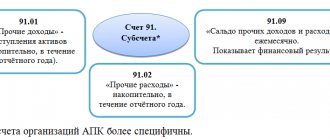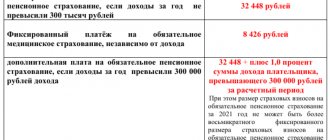Concept and types of services
Services are a type of activity that does not have a material expression, the results of which are sold and consumed in the process of economic activity of the enterprise (Clause 5 of Article 38 of the Tax Code of the Russian Federation).
Services exist in a wide variety, in particular:
- informational;
- audit;
- transport;
- storage;
- consulting;
- real estate agents;
- communications;
- training, etc.
In accounting, all services are included in costs based on primary accounting documents.
The main primary documents confirming the execution of services are:
- Agreement.
- Certificate of completion of work or other document confirming acceptance of services.
IMPORTANT! The Ministry of Finance believes that if the agreement does not provide for a clause on drawing up an act, then it needs to be drawn up only in cases provided for by law (letter dated November 13, 2009 No. 03-03-06/1/750). The Civil Code obliges to draw up an act confirming the acceptance of work only in the case of a construction contract (Article 720 of the Civil Code of the Russian Federation).
The procedure for concluding and terms of the contract for the provision of services are regulated by Ch. 37–41, 47–49, 51, 52 Civil Code of the Russian Federation. The main actors in the contract are the contractor and the customer of the services. Let's look at the accounting procedures for each of them.
Accounting for services from the contractor
The contractor's accounting directly depends on the type of activity and taxation regime. Most often, companies providing services in order to reduce the tax burden choose special regimes: UTII or simplified tax system. Along with them, OSNO can also be used.
- Income accounting.
Revenue from services provided is income from ordinary activities. The procedure for its accounting is regulated by clause 5 of PBU 9/99.
Postings from the contractor when selling services will be as follows:
- Dt 62 Kt 90.1 - reflects the sale of services.
- Dt 90.3 Kt 68 - VAT charged.
- Dt 90.2 Kt 20 (23, 25, 26, 43) - the cost of services provided is written off.
- Dt 50 (51) Kt 62 - services paid for by the customer.
- Cost accounting.
Cost accounting for companies engaged in the provision of services has its own specifics, since it depends on the specific type of activity. If a company is engaged in the provision of services that do not require material investments (for example, information, auditing or the like), then all costs are collected in the debit of account 20 “Production expenses” (clause 5 of PBU 10/99).
Consider, for example, training services. The main costs are salaries of employees, calculation of taxes and contributions, depreciation, etc. That is, to provide these services, the organization does not spend material assets on the production of any objects. At the end of the month, its costs are written off to the cost of sales by posting Dt 90.2 Kt 20.
If the company provides services and at the same time produces some material assets, then cost accounting is organized using accounts 20 “Production expenses”, 26 “General expenses” to account for management costs, and, if necessary, the 25th account “General production expenses” is used. expenses". Produced objects are accounted for on account 43 “Finished products”.
Example
Modern LLC provides outdoor advertising services. Assorted LLC ordered a banner for the store. The amount under the contract was 38,335 rubles. (including VAT RUB 5,847.71).
Postings in the accounting of Modern LLC:
- Dt 51 Kt 62 — 38,335 rub. — payment was received from Assorti LLC.
- Dt 62 Kt 90.1 — 38,335 rub. — sales of services are reflected.
- Dt 90.3 Kt 68 - 5,847.71 rub. — VAT is allocated.
Materials in the amount of 17,342 rubles were spent on the production of the banner. (excluding VAT). The remuneration of employees amounted to 8,500 rubles, contributions from the payroll - 2,805 rubles.
Postings:
- Dt 20 Kt 10 - 17,432 rub. — materials for making the banner were written off;
- Dt 20 Kt 70 - 8,500 rub. — wages accrued to employees;
- Dt 20 Kt 69 - 2,805 rub. — contributions from the payroll are calculated.
According to the accounting policy, Modern LLC keeps records of finished products at actual cost.
- Dt 43 Kt 20 - 28,737 rub. (17,432 + 8,500 + 2,805) - the banner was made at the actual cost.
- Dt 90.2 Kt 43 - 28,737 rub. — the cost of services is written off.
Do you want to know what risks the contractor may have when concluding a contract for the provision of paid services? Sign up for a free trial access to the ConsultantPlus system and proceed to the Guide to Contractual Work.
Accounting for sales of services by the contractor
From a financial point of view, revenue from the provision of services is part of the income from the company's activities. As a rule, revenue is recorded in documents on the date of provision of services. What does this mean? The accounting department must document the receipt of revenue during the period when the acceptance certificate or other primary document confirming the provision of services was signed. Among the mandatory requirements for the document is the presence of the details established by the Law “On Accounting”. In accounting, income from the sale of services is recorded in account 90 “Sales”.
The company may incur costs necessary to organize the service and provide services. From the point of view of the law, these costs are expenses by type of activity of the company. Therefore, they are taken into account on account 20 “Main production”. But the credit of accounts varies depending on what exactly the funds were spent on. This could be materials, depreciation, social insurance or wages - all of this relates to the company's expenses for its main production.
Please note the nuance: when a company engages a co-executor, the costs of paying for the assistance of this individual or legal entity are reflected in accounting as part of ordinary expenses. But it is necessary to make an entry on the debit of account 20 with a credit of 60, because the support of the co-executor must be recorded as settlements with suppliers and contractors and included in the cost of sales.
Instructions for using the Chart of Accounts describe in detail the postings for the sale of services. The accounting must reflect the fact of sales, the calculation of taxes, write-off of costs, and payment for services by the customer.
Accounting for services from the customer
Services are expenses of the customer enterprise and are most often included in expense accounts 20 (23, 25, 26, 44).
Let's continue the example
The accountant of Assorti LLC will make the following entries in the accounting:
- Dt 60 Kt 51 - 38,335 rub. - paid for advertising.
- Dt 44 Kt 60 — 32,487.29 rub. — advertising costs are taken into account.
- Dt 19 Kt 60 — 5,847.71 rub. — input VAT is taken into account.
However, some services may increase the cost of purchased goods or fixed assets (clause 11 of FSBU 5/2019 (until 01/01/2021 - clause 6 of PBU 5/01), clause 8 of PBU 6/01), for example transport or information services. In this case, they are reflected as follows:
- Dt 08 (10, 41) Kt 60 - the cost of fixed assets (inventory, goods and materials) has been increased by the amount of transport or other services to be included in the price.
For the procedure for forming the cost of fixed assets and inventory items, see the articles:
- “Fixed assets in accounting (nuances)”;
- «What entries reflect transportation costs?.
Do you want to know what risks a customer may have when concluding a contract for paid services? Sign up for a free trial access to the ConsultantPlus system and proceed to the Guide to Contractual Work.
Accounting for sales of services to the customer
A company or individual entrepreneur who orders services records them in accounting differently than those who provide them. Unlike goods, services are consumed immediately at the time of their provision. Therefore, expenses associated with the sale of services are written off to the debit of the “Sales” account at the time the service is provided without their intermediate accounting.
The customer recognizes the contractual cost of services provided (excluding VAT):
- expenses for ordinary activities, if the services are related to the ordinary activities of the organization (for example, with the production of products, the sale of goods, the performance of work) (clause 5 of PBU 10/99);
- other expenses, if the purchase of services is related to other operations (clauses 4, 11 PBU 10/99);
- costs of acquiring assets: fixed assets, intangible assets, goods, materials, etc. (clause 8 PBU 6/01 “Accounting for fixed assets”, clause 8 PBU 14/2007 “Accounting for intangible assets”, clause 6 PBU 5/01 “Accounting for inventories”).
Expenses are recognized on the date of provision of services and documented at that time. It should also be taken into account that the Instructions for its use of the Chart of Accounts require recording entries in the customer’s accounting as follows:
- Dt 20 (26, 44, 41, 08, 91.2, etc.) Kt 60 – cost of services (excluding VAT) is included in costs (expenses).
- Dt 19 Kt 60 – VAT presented by the contractor is reflected.
- Dt 90 Kt 20, 26, 41, 44 – the cost of services provided is written off.
- Dt 68.2 Kt 19 – accepted for deduction of VAT presented by the contractor.
- Dt 60 Kt 51 – services paid to the contractor.
Requirements for accounting, financial documentation and reports may change, so a competent accountant monitors changes in legislation.
Primary documents for accounting services
In tax accounting, services are also included in costs and reduce taxable profit, subject to economic justification and the availability of primary accounting documents (Article 252 of the Tax Code of the Russian Federation). The exception is standardized expenses, when only part of the costs according to the rate specified in tax legislation is included in the base when calculating profits.
As noted above, most often, to confirm the fact that the service has been provided, a certificate of completion of work is drawn up. The form of the act is not contained in the album of unified forms (with the exception of the KS-2 form); it is developed and agreed upon by the parties to the agreement independently, taking into account the conditions of each specific transaction. In this case, the form must contain the mandatory details listed in Art. 9 of the Law “On Accounting” dated December 6, 2011 No. 402-FZ:
- Name and date of the document.
- The name of the company that prepared the document.
- The name of the work performed, indicating the cost and quantitative characteristics.
- Signatures of the parties indicating the positions and names of the signatories.
For a sample of filling out the acceptance certificate for completed work, see the material “Acceptance certificate for completed work - sample.”
The fact of provision of construction services is confirmed by an act in the KS-2 form.
The algorithm for filling out this document is given in the article “Acceptance certificate for completed construction work - sample”.
When providing transport services by a carrier company, in addition to the work completion certificate, there must be transport documents. Such documents, in particular, include invoices.
IMPORTANT! Since 2013, unified forms are not mandatory for use; organizations have the right to develop them independently.
The procedure for accounting for transportation costs is described in detail in the publication “Transportation costs are charged to the buyer’s account - posting.”
Results
Accounting for services is based on accounting standards. The accounting methodology is specific and depends on the specific type of activity of the performing company. Revenue from the provision of services is included in income from ordinary activities. Expenses are recorded as costs from normal activities in cost accounts. In the production of material assets necessary for the performance of services, finished product release account 43 is used.
For the customer, the cost of services is recognized as an expense and is charged either to cost accounts or to an increase in the purchase price of assets for which these services are related.
Sources:
- Tax Code of the Russian Federation
- Civil Code of the Russian Federation
- Federal Law of December 6, 2011 N 402-FZ “On Accounting”
You can find more complete information on the topic in ConsultantPlus. Free trial access to the system for 2 days.
Simplified production cost accounting
Law No. 402-FZ “On Accounting” gives some organizations the right to conduct accounting in a simplified manner. This can be done by small businesses, non-profit organizations and Skolkovo residents.
Here's what simplified accounting gives companies:
- a simplified chart of accounts and the ability to abandon accounts 23, 25, 26, 28 and 29. Then all production costs will be accounted for on account 20;
- cash method, in which account 20 contains only paid materials, services, salaries paid, accrued depreciation, etc.
- the ability to write off the cost of inventories as expenses upon acquisition;
- the right to form the initial cost of the OS based on the supplier’s price and installation costs;
- charge the annual amount of fixed assets depreciation at a time on December 31 or throughout the year for periods that the organization determines itself.







